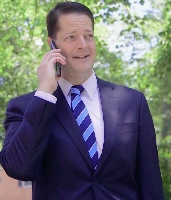Bristow White Collar Crime Lawyer, Virginia
Sponsored Law Firm
-
 x
x

Click For More Info:
-
The Law Offices of Richard L. Cooper, P.A.
848 Brickell Avenue Suite 800 Miami, FL 33131» view mapDWI/DUI, Drug Trafficking, Felony Nationally Ranked Top 40 Under 40
With Richard L. Cooper you can expect a trusted confidant who will work diligently to fully understand your case and determine a road map to help you regain control of your life.
800-756-2781
Steve Duckett
Criminal, Felony, DUI-DWI, White Collar Crime
Steve Duckett is a lawyer in the state of Virginia who handles criminal cases. He has tried cases involving assault, drug crimes, DUI, gun charges,... (more)
Mary Margret Nerino
Criminal, DUI-DWI, Felony, Misdemeanor, White Collar Crime
Mary Nerino is a practicing lawyer in the state of Virginia who handles criminal cases. She has tried cases in assault, drug charges, domestic viol... (more)
Michael C. Sprano
Traffic, White Collar Crime, Constitutional Law, Antitrust
Status: In Good Standing
Burton J. Haynes
International, White Collar Crime, Constitutional Law, Bankruptcy
Status: In Good Standing Licensed: 41 Years
J. Taylor Monfort
White Collar Crime, Transactions, Complex Litigation, Criminal
Status: In Good Standing
Lauren Friend Mckelvey
Litigation, White Collar Crime, Banking & Finance, Communication & Media Law
Status: In Good Standing Licensed: 14 Years

 Richard L. Cooper Miami, FL
Richard L. Cooper Miami, FL AboutMiami Attorney at Law
AboutMiami Attorney at Law ServicesCriminal Defense
ServicesCriminal Defense



